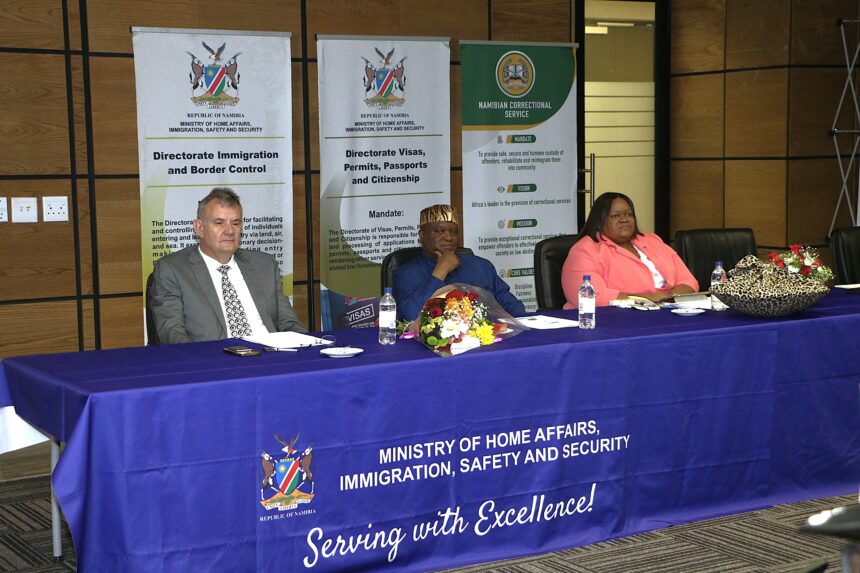Lahja Nashuuta
The immigration ministry’s newly-implemented e-visa programme has generated N$19 million in just one month.
Namibia officially launched its online visa application system on 3 March. The new system allows travellers from 33 countries to apply for visas prior to arrival. The programme was hailed for significantly reducing wait times and alleviating congestion at border points. This initiative aims to streamline the entry process, making it more efficient for visitors to Namibia.
Albert Kawana, the former Minister of Home Affairs, Immigration, Safety and Security, praised the programme’s success during a farewell and handover event held at the ministry. He stated that the programme’s success could lead to billions of Namibia dollars in revenue by the end of the year.
He revealed that 12 562 visitors applied for the e-visa in March, each paying N$1 600. “This shows that the decision was sound, and that the programme is one of the most effective initiatives I introduced during my tenure,” he said. However, Kawana also informed the newly-appointed minister, Lucia Iipumbu, that there are several critical programmes awaiting implementation.
Among the pending projects is the construction of the police village in Windhoek. The construction has begun, with the installation of electricity, water and fencing now completed. The project is funded through Namibia’s partnership with China, facilitated by former president Nangolo Mbumba, and has been confirmed by Chinese president Xi Jinping.
Other ongoing projects include the formalisation of ungazetted border posts in Kunene [Otjimuhaka and Onungurura] and Zambezi regions. Kawana also addressed the issue of unregulated crossings along Namibia’s border with Angola. Despite an agreement between the two governments, many people continue to cross at unauthorised points, especially at night, making it difficult to document and monitor their movements. “Controlling these crossings is challenging,” he said.
“There are authorised points where travellers should be recorded, but many avoid these and enter through unofficial routes, making it difficult to track them.” Additionally, there are plans for the construction of the Nkurenkuru Civic Affairs Office and other infrastructural projects, including the Divundu silo to store irrigation produce from the Namibia Correctional Service (NCS). The ministry also plans to revive the Okaokotavi Garden in the Kunene region and the Ondangwa Tannery for the NCS rehabilitation centre, which will be used for shoe production.
The new e-visa programme is part of Namibia’s broader strategy to modernise its visa system. Travellers from the 33 eligible countries must now apply for either an electronic visa (e-visa), a visa from a Namibian diplomatic mission, or a visa on arrival.
On her part, Iipumbu emphasised the importance of collaboration, teamwork and customer service.
“I am fully aware of the challenges the ministry faces, and I urge all directorates and stakeholders to work together to improve service delivery to citizens and visitors alike,” she said.
-lnashuuta@gmail.com
Photo : Heather Erdmann


